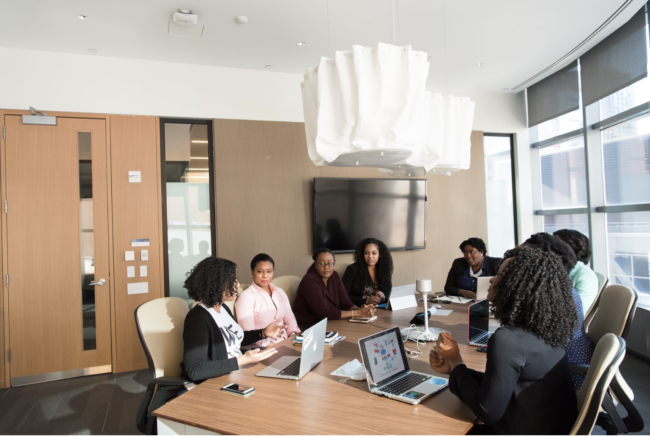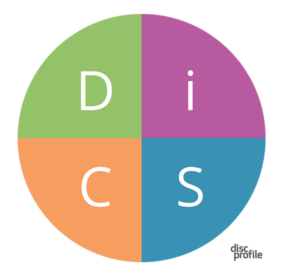How a New Orleans Digital Marketing Agency Uses the DISC Methodology to Improve Client Relations
April 20th, 2022 by
Key Insights:
- Tailoring a message to compliment the intended person’s personality helps build rapport and trust within a professional and personal relationship.
- Personality types affect how people communicate with each other effectively—it is the main reason people respond and act in their own unique ways.
- The experienced Search Influence team tailors our communication, reporting, and working style based on our stakeholder’s perceived DISC type.
Introduction
Personality types affect how effectively people communicate with each other—it is the main reason people respond and act in their own unique ways. This is especially true when it comes to business relationships. The entire account management team at our New Orleans digital marketing agency uses the DISC methodology to learn more about each client’s personality styles, allowing our team to strengthen and build relationships by adapting to each client’s unique behaviors.
DISC Methodology
The DISC methodology is a personal development framework that helps us understand ourselves and how we interact with others. From Fortune 500 companies to nonprofit organizations and small-owned family businesses, companies worldwide use the DISC methodology.
The DISC methodology comprises four personality types: Dominance, Influence, Steadiness, and Conscientiousness. Understanding all four of the unique personality types in the DISC methodology promotes productivity in the workplace by developing better communication that leads to healthy relationships.
Search Influence’s account management team uses the DISC methodology to aid in client communication. We customize our emails, reports, and presentations to both our primary point-of-contact and and their stakeholders, providing information in varying formats to suit their different personality types and roles.
Dominance
The D in the acronym DISC stands for dominance. Approximately 9% of the worldwide population have the personality traits classified as dominance. According to extendeddisc.org, people with this personality type tend to be motivated by competition, winning, and success. They have a deep appreciation for exploring new opportunities and achieving independence. They value action conversions and fear looking vulnerable or weak.
Typically a team leader, executive, public speaker, or account executive, dominant personality types excel in authoritative roles. At our New Orleans digital marketing agency, we use brief and direct, to-the-point communication with D personality types. We also make sure we speak in terms of “What” not “how,” because D types are interested in what we are doing to make improvements, not how we are doing it. By talking about results, not processes, our account managers keep communication productive with D types.
Influence
The next personality type in the DISC acronym stands for Influence. According to extendeddisc.org, these people make up about 29% of the world’s population. Those with this personality type are often warm, trusting, and energetic.
I types prioritize shaping their environment by influencing others. They can persuade others with their charm, optimism, and energy. With their ability to generate excitement, I personalities value their friendships and pursue them with happiness. Their overall goal is to attract attention with their outgoing personality.
Often designers, copywriters, or creative directors, Influence personality types respond well when allowed to verbalize their ideas. Allowing I types to communicate freely and creatively enables them to explore new ideas and discover new approaches to problems at hand.
At Search Influence, we strive to build friendly lines of communication with I type personalities. This more casual and laid-back style allows I types to feel comfortable and let their ideas flow. Once a relationship and open lines of communication have been established, our team is able to craft a collaborative environment where I types can use their excellent verbal and creative skills to communicate their vision and pursue new opportunities.
Steadiness
The third personality trait in the DISC methodology acronym is Steadiness. According to extendeddisc.org, the S style comprises 31% of the population. These people are steady, calm, and easy-going. This candidate prefers continuity and familiarity—they tend to sway away from new ideas, as this makes them feel uncomfortable.
Often asking “How” questions, S styles want to gather all the details to think about the best plan for execution. These personalities are very poised and stable, do not get overly excited, and are rather patient and careful when making decisions. S personalities thrive when they are in a routine and can interact with other people regularly. Because of this, S personality types are often counselors, HR directors, doctors, and executive assistants.
When discussing our digital marketing services with S personalities, our team ensures to craft a predictable and stable work environment where S types can plan for the future and stick to the agreed-upon routine. For example, our team might make a special note not to reschedule meetings with S types because this could throw them out of their workflow.
Conscientiousness
The last personality trait in the DISC method is the C, which stands for Conscientiousness. According to extendeddisc.org, this style of people makes up about 31% of the worldwide population.
C-style people tend to be very detail-oriented. Often asking “Why” questions, this style will often be deliberate and methodical when solving problems and is comfortable spending hours analyzing large amounts of data to solve the aforementioned problems.
Analytical and precise by nature, C types are at their best when they can work independently and focus on problem-solving. Common positions for C personality types are data scientists, software engineers, financial analysts, and software developers.
As an SEO agency, Search influence frequently works with C types. Our experience has taught us that to provide detailed reports and facts in advance so they can process the information. We have also found that during a meeting with C types, it’s best to follow a specific agenda (which is always sent ahead of time) and to reference and maintain project trackers. This allows them to gather details and process the tasks at hand.
Tailoring Your Metrics Based on DISC Type
The experienced Search Influence team tailors our metrics based on our stakeholder’s DISC type. We find this helps us select the right metric to focus on when communicating our marketing plan to our clients.
For example, C style personalities may care about those micro metrics and higher funnel metrics, whereas D types are more likely to care about lower-funnel metrics. As such, when we are communicating with a D type, we focus on conversion-based data.
Improve Communication with Stakeholders and Teammates through the DISC Method
On our team, we find it can be impactful for interpersonal relationships to understand one another’s DISC profiles. Search Influence is an SEO company and digital marketing agency with years of experience using the DISC methodology to improve client communication and relationships—and we use it internally to work more efficiently and effectively for our clients.
We believe the DISC Workplace Profile Assessment can help companies to differentiate personality types and understand the preferences of others when connecting in the workplace. Learn how Search Influence can help you craft a results-driven digital marketing campaign with assistance from the DISC methodology.
Images:



